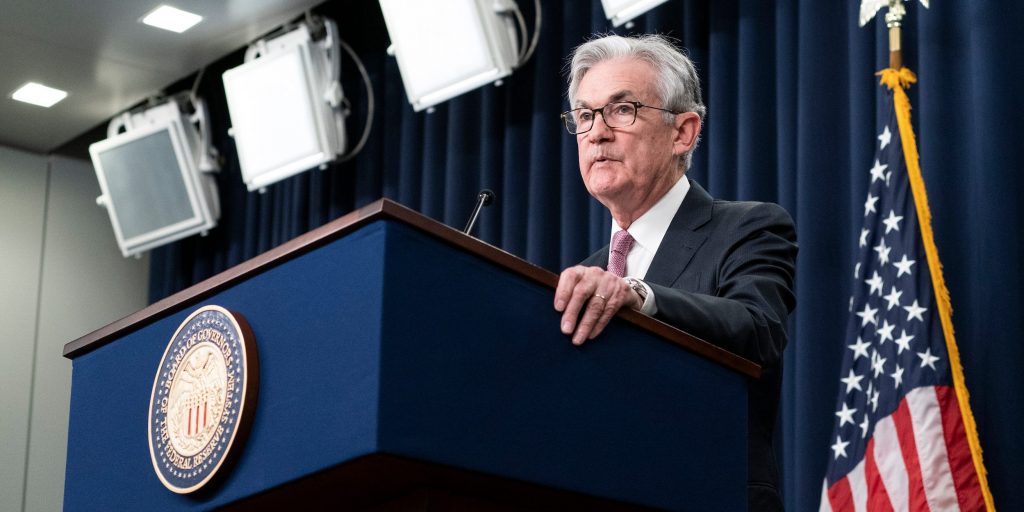- The US will fall into a mild but lengthy recession as the Fed hikes interest rates hard, Nomura has said.
- The investment bank's economists said the US economy would grow 1.8% this year before shrinking by 1% in 2023.
- It said the slowdown would be drawn out because high inflation means the Fed and government are unlikely to release more stimulus.
The Federal Reserve's interest-rate hikes will push the US into a mild but lengthy recession this year that will cause the economy to shrink in 2023, investment bank Nomura said Monday.
Nomura said US gross domestic product would start to contract in the fourth quarter of this year, followed by six more quarters of negative growth.
It said US GDP would grow just 1.8% in 2022 before shrinking 1% in 2023. The bank expects unemployment to jump above 5% by the end of 2023 and to near 6% in 2024, from 3.6% currently.
The Fed hiked interest rates by 75 basis points, or 0.75 percentage points, last week in the biggest increase since 1994. Less than a week before, data showed inflation came in at 8.6% year-on-year in May, the highest reading in 41 years.
Nomura economists Aichi Amemiya and Robert Dent said in a note Monday that the persistence of inflation meant the Fed would have to raise interest rates harder than previously expected, spelling trouble for growth.
The bank's analysts said the Fed would raise rates to around 3.4% by the end of the year and push them to a peak of between 3.5% to 3.75% in 2023, before cutting them as growth slows. The Fed's target range currently stands at 1.5% to 1.75%.
"With rapidly slowing growth momentum and a Fed committed to restoring price stability, we believe a mild recession starting in Q4 2022 is now more likely than not," the analysts said.
Nomura said the recession would only be mild because consumers had built up a large amount of savings during the coronavirus pandemic which should provide a cushion.
However, the bank's analysts expect the downturn to last longer than previous episodes of weakness because high inflation means more central bank or government stimulus is unlikely.
Amemiya and Dent said the economy was already slowing down, with retail sales falling in May. They said Google searches for "recession" have recently risen dramatically.
The economists added that the Fed's interest rate hikes — through their effect on bond yields and mortgage costs — have already hit the housing market, a key part of the US economy.
Recessions in the US are adjudicated by the National Bureau of Economic Research. It defines them as a period when activity declines significantly across the economy and which lasts more than a few months.
